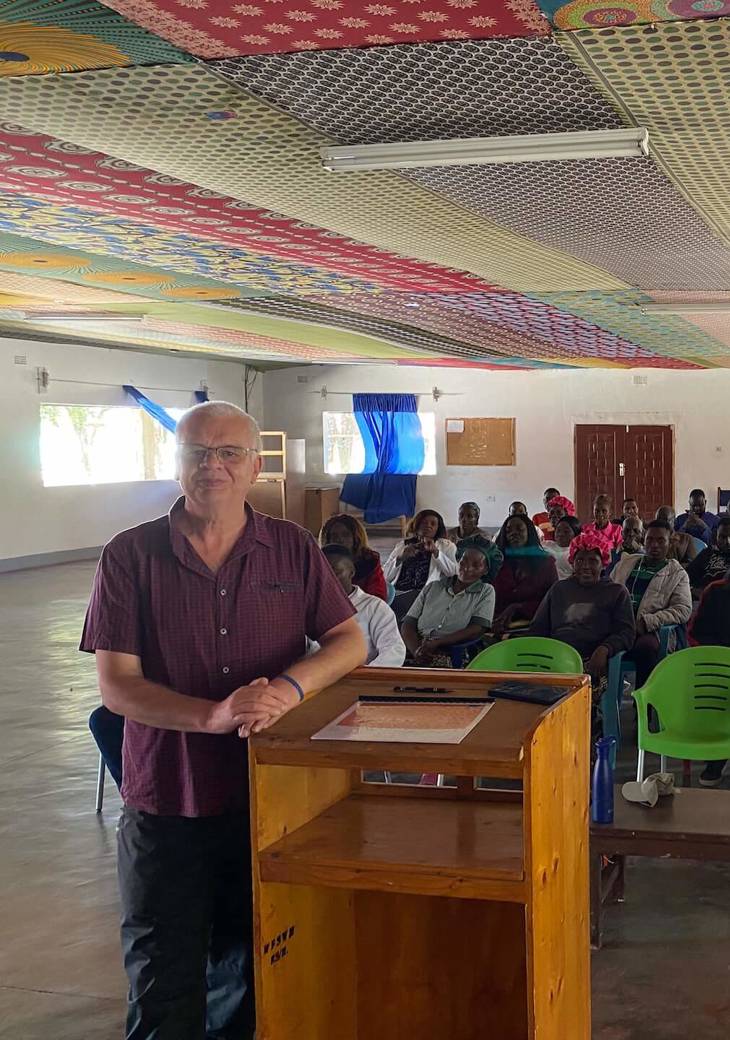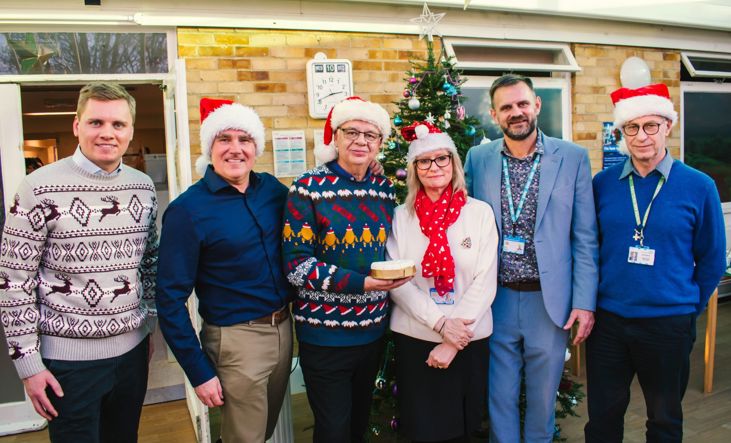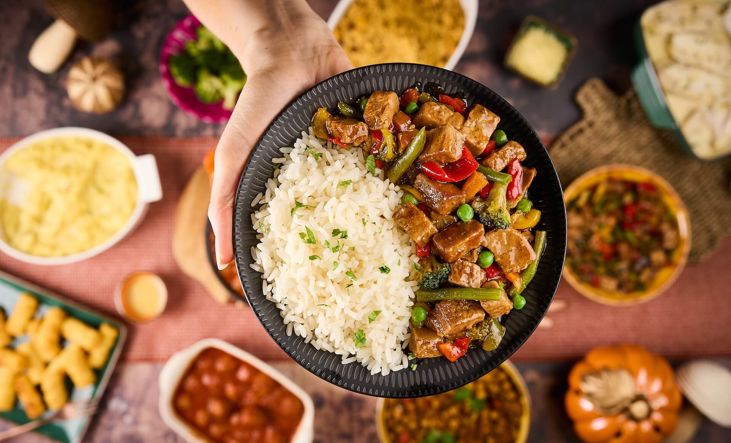Empowering communities
In the heart of Zambia, communities are coming together to overcome challenges and build a brighter future. Life Support, a charitable organisation, is partnering with local leaders, caregivers, and children at Eden Farm to provide essential training and resources.
Among those contributing to this work is our National Accounts Manager, John Harvey, and his wife Carol (pictured below far right and left). They make up two of many volunteers from around the world lending a hand to amazing local initiatives like Eden Farm.
This September, John will be returning to Zambia, and we’re delighted to share some of the things he’ll be working on in this week’s blog post!
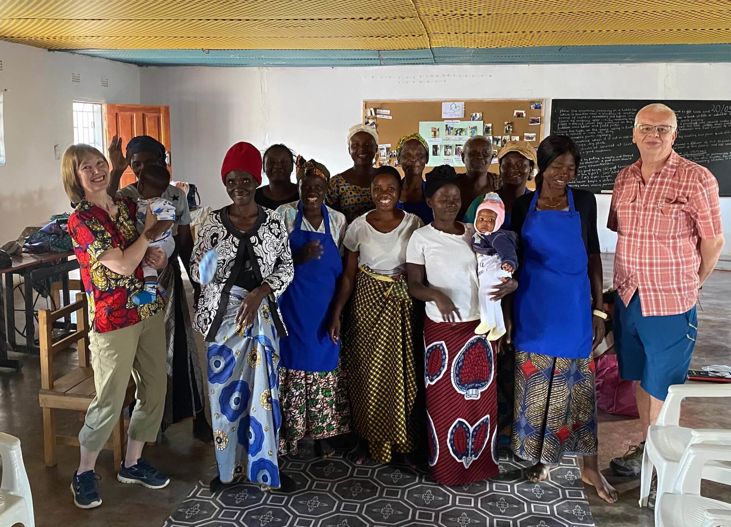
Back to Eden Farm
Eden Farm is part of Life Support Ministries, a charity dedicated to transforming the lives of vulnerable children and families. It is home to six orphanages, each with a “House Mum” who provides care and stability for around 6 to 8 children, many of whom have lost parents or live in extreme poverty.
The farm also offers a primary and secondary school (pictured below) serving over 400 students, many of whom walk over an hour and a half, often with no breakfast, just to learn. It’s a place of determination and community, making real progress towards a better future for all involved.
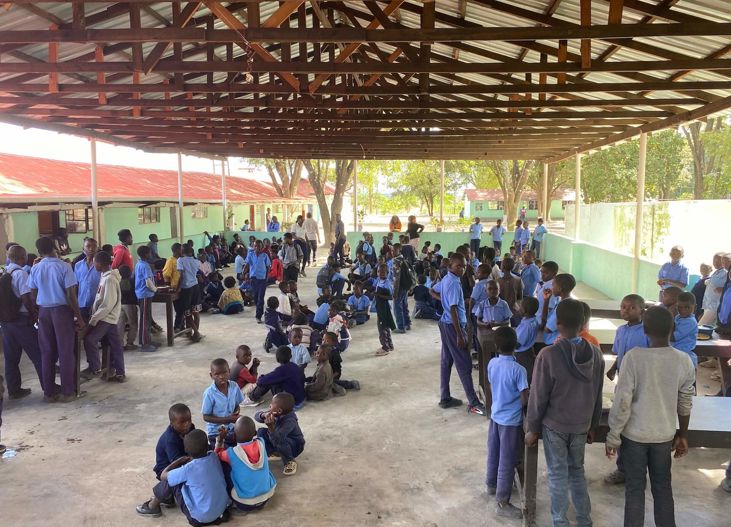
The September trip to Eden Farm focuses on delivering essential resources. Not only have the teams in Cuisine Centre and Compass Group banded together to donate clothing, storybooks, and stationery for John to distribute, he’ll also be collaborating with local teams to deliver training in the following areas:
- Living Well: Learning life skills for better quality of life
- Team Development: Building people and community organisation
- Health & Safety: Equipping communities with essential knowledge
- Food Safety: Ensuring safer food handling and nutrition education - a particular strength of John’s given his extensive experience in Cuisine Centre and the food industry!
These workshops are designed alongside the community at Eden Farm, equipping residents, students, and workers with tools that support long-term self-reliance. Skills like washing hands, keeping food hot, or keeping flies at bay are lifelines for the most vulnerable.
As a company, Cuisine Centre is dedicated to providing high-quality meal solutions, and we know how vital the basics of clean water, safe preparation, and proper storage are in keeping people healthy. John’s training sessions with Life Support reflect the very standards we uphold as a business, showing how the knowledge we use every day can make a real difference in the world.
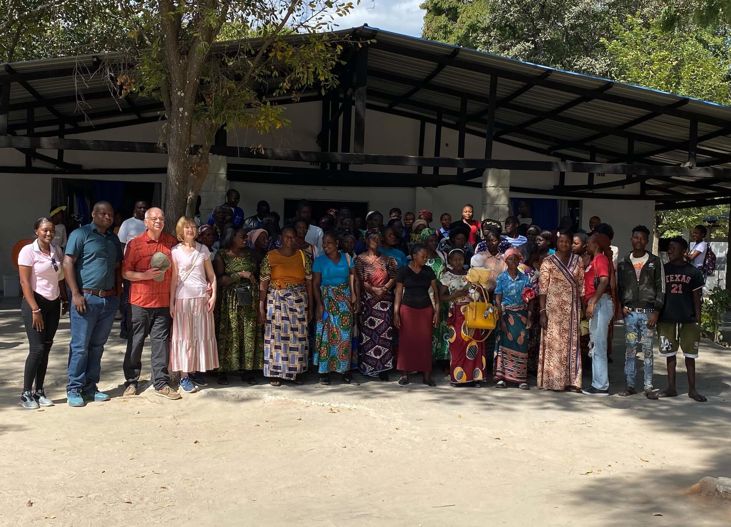
“Knowledge is power” were the wise words from one of the House Mums, Emma, after she'd received her first ever food safety training. For many caregivers, this training marks the first time they’ve received any formal education on food hygiene and safety, helping them to prevent illnesses and bolstering confidence in their skills.
Introducing Project Kiwi
This year, the team at Eden Farm identified some areas which would improve the living experience for workers and, most importantly, the children in their care. Working together with Life Support, Project Kiwi was created to deliver the following measures, with many more to follow:
- Installing more taps around the compound (pictured below with Social Worker, Precious), enabling everyone to wash their hands more readily to improve hygiene and reduce illness.
- Extending security lighting, so children and the team can feel safe walking around after dark.
- Providing blankets for children to help them feel comforted, especially for those new to Eden Farm.
These improvements may seem modest, but the practical and emotional benefits are profound.
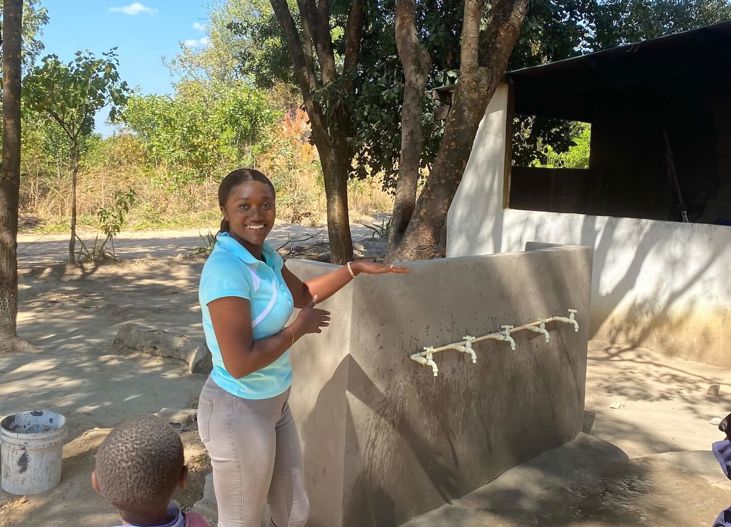
The joy of bottle-top necklaces
These efforts in Zambia remind us that transformation often begins with simple, community-driven ideas. John frequently reflects on what these trips teach him, learning lessons which reach far beyond the walls of Eden Farm:
“The people we work with are warm, welcoming, generous and so respectful. There are so many needs, so many priorities and we know we can’t meet all of them. Sometimes marginal gain is OK. It means you're still making a difference.
I’ve learnt the value of small things such as bottle tops made into necklaces, water bottles repurposed for fly protection, and not to miss the quiet moment of an African sunset.”
Want to find out more about how we support communities and create positive change across our entire supply chain? Learn more about our impact here.

